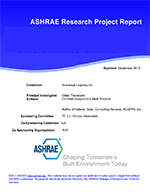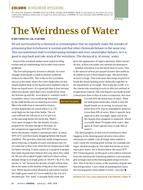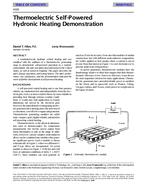Conventional ventilation systems (mixing and displacement) produce low air quality in industrial premises.A newair supply system (confluent jets system) may improve the ventilation efficiency and the energy efficiency. When round jets issue from co-planar nozzles with enough spacing, they converge, merge, and combine at certain downstream distances, which are called confluent jets. In order to numerically predict confluent jets, it is crucial to provide inlet boundary conditions for these jets at the nozzles’ exit. Numerical prediction of inlet boundary conditions of confluent jets was chosen due to two reasons: the difficulty of measurement at the nozzles’ exit, and lack of information about the shape of the employed nozzles to make artificial inlet profiles. Numerical predictions by two turbulence models of the supply device producing the confluent jets was verified by hot-wire measurements at 0.26 d0 downstream of the nozzles’ exit in both lateral and vertical direction. The verification was carried out for different nozzles in an array by measuring axial velocity and its turbulence intensity. The axial velocity profile at the nozzles exit has a saddle-back shape with two distinct off-centered overshoots. The convergence of the velocity profile shows the existence ofVena contracta phenomena. Low turbulence intensity at the central part of nozzles was found with narrow shear layer upstream of confluent jet flow. Differences of velocity components, turbulent kinetic energy (TKE), and turbulent dissipation rate (TDR) of the studied contraction nozzle were examined with a flow issuing from a typical long pipe. Reynolds number dependency in the studied range has been carried out and Re effects were observed on TKE but not on TDR.
Product Details
- Published:
- 2014
- Number of Pages:
- 15
- File Size:
- 1 file , 3.9 MB
- Product Code(s):
- D-NY-14-021
- Note:
- This product is unavailable in Russia, Belarus


